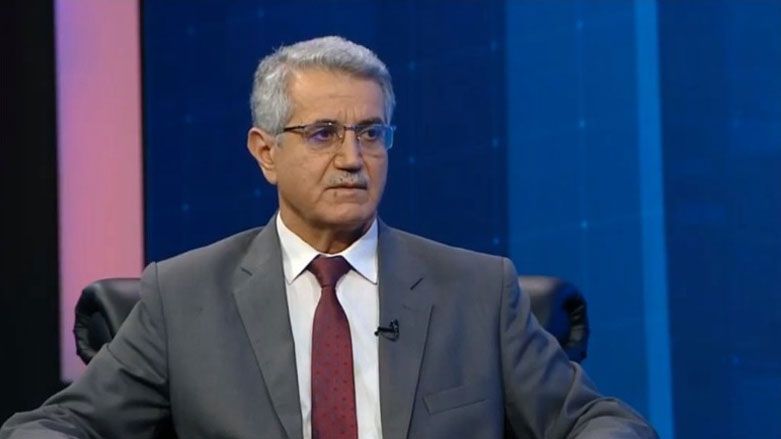The ENKS President’s perspective for The Kurdish Globe: President Barzani’s vision for Syria and Rojava Kurdistan holds great importance.
Dr. Muhammad Ismail, Secretary of the Kurdistan Democratic Party of Syria (PDK-S), a leading and influential party within the Kurdish National Council in Syria (ENKS), shared new insights. As President of the Kurdish National Council, he discussed the future of Kurds in Rojava Kurdistan and Syria.
Dr. Muhammad Ismail, in an interview with The Kurdish Globe, spoke about intra-Kurdish dialogue and efforts to determine the Kurdish stance in a new Syria. He said: “Efforts for dialogue continue, especially among Kurdish factions, but this requires both more mechanisms and time. One of the issues is that meetings held in Damascus over Syria’s future have so far yielded no concrete outcomes. Discussions remain personal and anecdotal, and no formal framework for dialogue between parties has been established, nor have mechanisms or schedules for meetings been clarified.”
He stressed that ENKS won’t become a bridge for others to cross over. “ENKS represents its people, and if others (SDF) revise their policies and move toward agreements, the presence of an inclusive delegation for Damascus is not a problem. No one can put us on a side against people. True, Kurdish society wants unity of position, but this doesn’t mean we’ll put our policy at SDF’s disposal.”
On Kurdish unity agreements
Regarding Kurdish unity, Dr. Ismail explained: “The United States and France have attempted to mediate meetings among us. However, we insisted on conditions: without U.S. and French guarantees, we would not attend. In 2020, we signed an agreement, but it was not implemented. Meanwhile, propaganda against ENKS continues, suggesting we are unwilling to pursue Kurdish unity. They want to manipulate public emotions against us while pressuring us. Despite previous agreements like Erbil 1, Erbil 2, Dohuk 1, and Qamishli, these were not implemented. Our concern is that when certain parties face difficulties, they suddenly call for unity, but when circumstances ease, they abandon this idea. During our recent discussions with U.S. and French representatives, we emphasized that without proper implementation of agreements, we would continue our struggle independently. We remain steadfast in our vision for Syria’s future and will not compromise our policies, ensuring we represent our people’s aspirations.”
The desired future for Syria
Dr. Ismail highlighted that: “We want Syria’s future to be inclusive and equitable for all its components. Everyone has suffered from the previous regime’s oppression and violence. All groups should participate in shaping Syria’s future and constitution. As a party, we are closely monitoring Syria’s developments and insist that Kurdish rights be enshrined in Syria’s constitution. We refuse for Kurds to remain marginalized and demand a recognized role in shaping Syria’s future. Our representatives in Damascus are engaging with Arab, Druze, Ismaili, democratic, liberal, Turkmen, Armenian, and Christian groups to ensure Kurdish rights are secured in Syria’s new constitution.”
When asked about their demands from the SDF, he explained: “The presence of the U.S. and France in discussions is critical to provide a framework for the SDF to determine its role. While the timeline remains unclear, we believe progress requires consistent support.”
On the number of PKK fighters in Rojava, Dr. Ismail stated: “This is unclear and remains under the authority of relevant parties to address how they will be withdrawn from Syria.”
President Barzani’s role in Rojava’s situation
Dr. Ismail remarked: “President Barzani has always been a strong supporter of Rojava’s Kurdistan. His proposals and perspectives have been crucial, and he has never hesitated in his efforts. He consistently calls for unity and collective Kurdish stances. His vision for Rojava’s future—which he has championed for years—is rooted in resolving Syria’s issues through dialogue and reconciliation among all components.”

